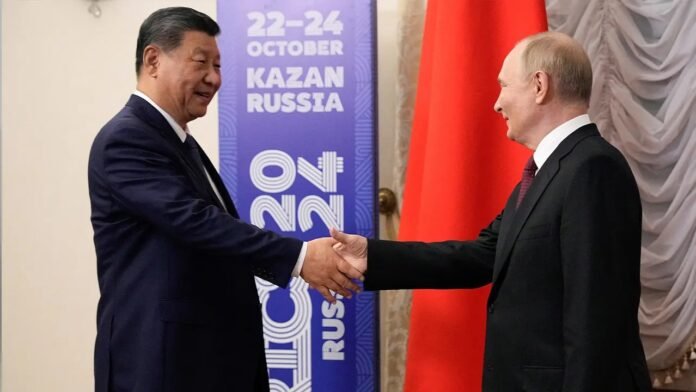The Biden Administration’s Support for a New U.N. Cybercrime Treaty: Implications and Concerns
In a significant move that has stirred debate among lawmakers and cybersecurity experts, the Biden administration is set to support a new United Nations treaty aimed at establishing a global cybercrime convention. This treaty notably includes participation from China and Russia, two nations often viewed as adversaries by the United States. The decision has raised eyebrows and sparked concerns about the potential implications for international cybersecurity governance.
The Context: The Budapest Convention
Since its inception in 2001, the Budapest Convention has served as the primary framework for international cooperation on cybercrime, facilitated by the Council of Europe. This treaty has been signed by 76 countries, but notably excludes both Russia and China. The existing framework has been praised for its focus on protecting human rights and promoting internet freedom, but critics argue that it lacks the necessary inclusivity to address the evolving nature of cyber threats.
The new U.N. treaty aims to rectify this by welcoming China and Russia into the fold of global cybercrime governance. However, this inclusion has not been well-received by all, particularly among U.S. lawmakers who fear that it could undermine the principles of democratic governance and human rights.
Concerns from Lawmakers
A group of Democratic lawmakers recently expressed their apprehensions in a letter addressed to key figures in the Biden administration, including Secretary of State Antony Blinken and Attorney General Merrick Garland. They highlighted the challenges of defending human rights and internet freedom in a framework that includes nations known for their authoritarian regimes. The lawmakers warned that Russia and China are adept at leveraging international platforms to legitimize their actions, which could pose significant risks to the integrity of global cybersecurity efforts.
The letter emphasized that while the intention behind the new treaty is commendable, it may not adequately address the fundamental flaws inherent in including these nations in the governance structure. Critics argue that this could lead to a dilution of standards and principles that have been established under the Budapest Convention.
The Administration’s Rationale
Despite the concerns raised, the Biden administration has defended its decision to support the new treaty. After extensive deliberations involving various stakeholders, including hundreds of non-governmental organizations focused on human rights, the administration concluded that maintaining a consensus approach would enhance the United States’ influence on global cybersecurity policy.
A senior administration official stated that the U.S. aims to promote a “rights-respecting” cybersecurity framework, arguing that engagement with adversarial nations is necessary to address the complexities of modern cyber threats. The administration plans to develop a risk management strategy to address the concerns surrounding the treaty and will actively engage with non-governmental stakeholders to refine this approach.
The Path Forward
A consensus proceeding took place recently, resulting in the resolution being approved without a formal vote. It is anticipated that the U.N. General Assembly will adopt the treaty later this year. The administration’s commitment to refining the treaty and addressing concerns raised by critics will be crucial as the global community navigates the challenges of cybercrime.
As the world becomes increasingly interconnected, the need for robust international cooperation on cybersecurity is more pressing than ever. However, the inclusion of nations with questionable records on human rights and internet freedom raises critical questions about the future of global cyber governance.
Conclusion
The Biden administration’s support for the new U.N. cybercrime convention marks a pivotal moment in the evolution of international cybersecurity policy. While the intention to create a more inclusive framework is commendable, the potential risks associated with including adversarial nations like China and Russia cannot be overlooked. As discussions continue and the treaty moves closer to adoption, the balance between cooperation and the protection of democratic values will be a key focus for lawmakers and stakeholders alike. The outcome of this initiative could have lasting implications for how the global community addresses cyber threats in the years to come.

